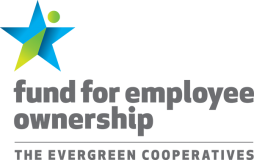
What is Employee Ownership?
Employee ownership or EO is a powerful business model that unlocks countless opportunities to take your business, your employees, and your community to the next level. Businesses that have transitioned to EO grow faster than their traditional counterparts, have employees who are more satisfied, and help their communities retain local businesses.
EO is a business model in which the employees have an equity stake in the business. The employees are full or part owners of the business. EO is beneficial to the business, the employees, and the community.
Do you know EO?
As a small business owner, you're building something you can be proud of, with a great team beside you. Do you understand the Employee Ownership options available to you?




















